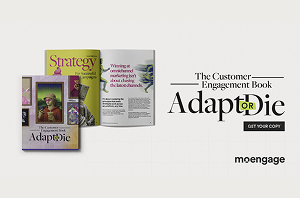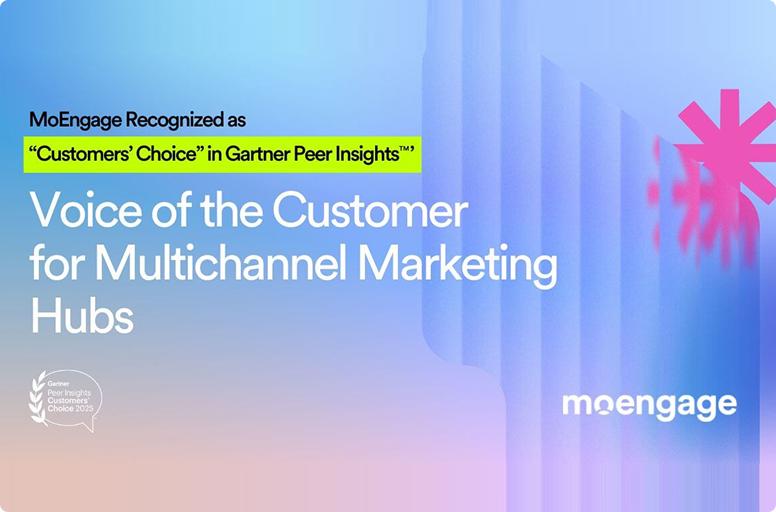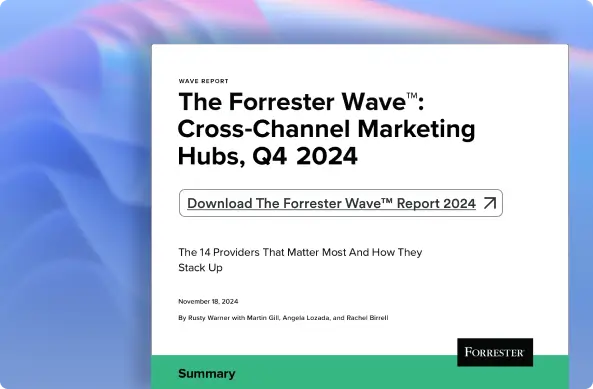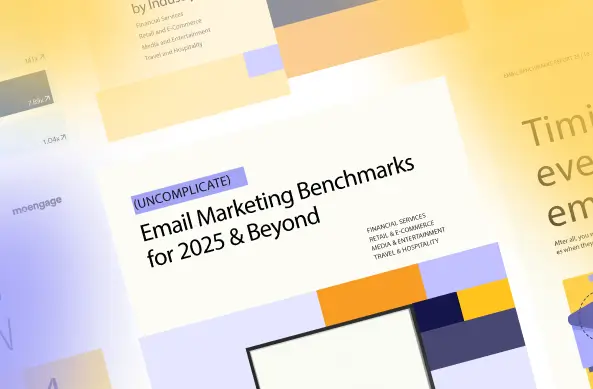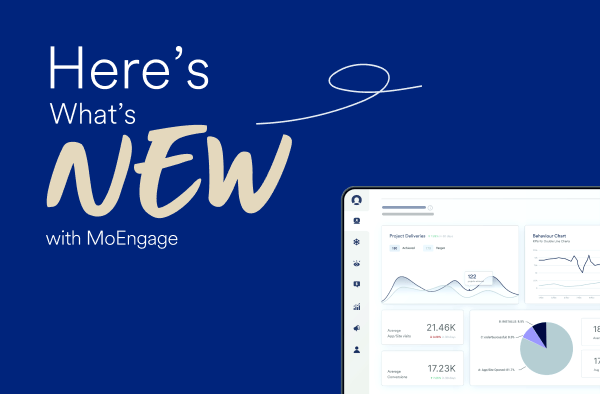8 Critical Email Marketing Mistakes and How to Avoid Them
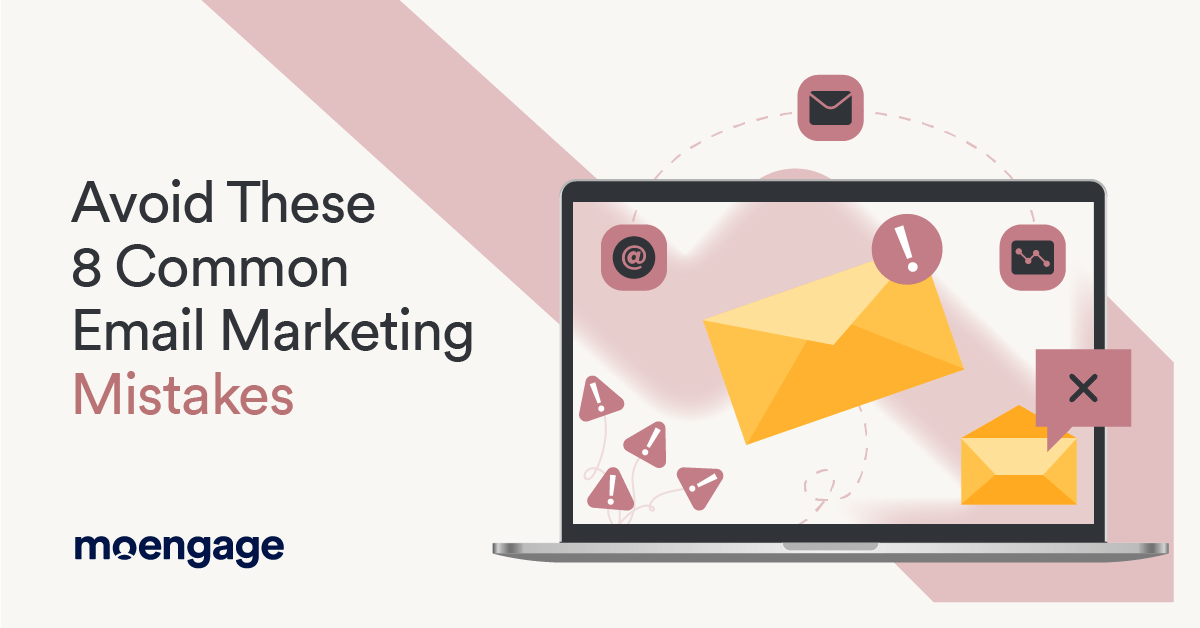
Reading Time: 6 minutes
Email marketing continues to be one of the most powerful tools for businesses trying to boost relationships with their audience, so making common email marketing mistakes can have a detrimental impact on the success of a business’s email marketing strategy.
With 4 billion daily email users, the potential to get noticed by new and existing customers offers an opportunity that is too good to pass up. Many businesses use email marketing to engage recipients at different stages of the funnel, personalizing their content and creating effective campaigns that stand out from the crowd.
That being said, we have seen countless examples of email marketing done poorly. Not only does this make a marketing campaign a big flop, but it also has the potential to hinder the overall brand image.
In this article, we’ll delve into eight of the most common email marketing mistakes so you can avoid them.
Top 8 Email Marketing Mistakes to Avoid
Although mistakes happen, they can greatly impact a brand’s reputation. Here are some common mistakes to avoid in email marketing that we’ve seen time after time.
1. Optimizing Only for Web
With email marketing campaigns typically built on large screens, it can be easy to ignore how the same email looks on a phone or tablet. This can be one of the most crucial email marketing mistakes, cutting out a considerable percentage of recipients who are using mobile devices to check their emails.
Studies show that 50% of people will delete an email if it isn’t optimized for mobile. Failure to create mobile-optimized campaigns can create clunky-looking emails that are hard to read or interact with, leaving a bad impression and potentially losing customers.
What You Should Do Instead
To optimize your campaigns for mobile, you should search for an email hosting provider that offers a responsive design template. It can automatically adjust the display according to the recipient’s device.
By scaling images and ensuring that text is readable across all devices, emails achieve maximum impact, and businesses can maintain a healthy customer engagement rate.
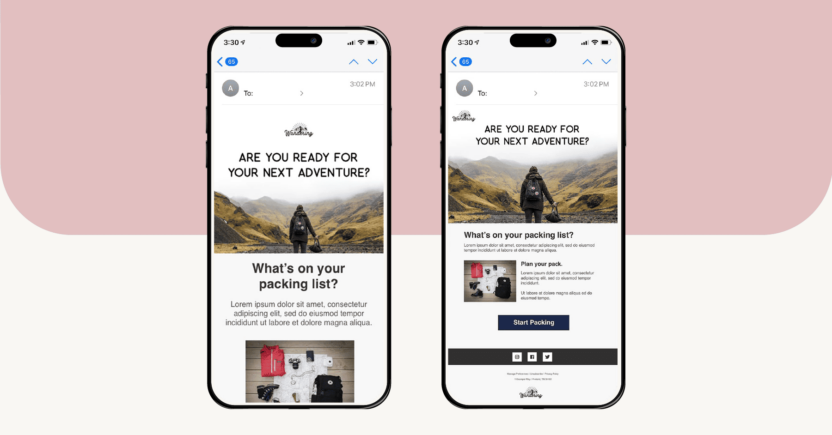
2. Sending Emails at the Wrong Time
Getting the timing right can be the difference between a successful email marketing campaign and making one of the classic email marketing mistakes. Email users are more likely to check their inboxes at certain times of the day, so landing an email at the right time will grab their attention when it matters.
On weekdays, 3 pm–7 pm is prime time, reaching people who have wrapped up work for the day and are on their commute home or winding down in the evening. But 9 am is more successful on weekends, fitting into the routine of those enjoying slower mornings.
Analyzing past email campaigns to spot any correlation between successes and the time of day an email was sent will help you get to know your audience and avoid making more email marketing mistakes. If there is not enough data to check, running A/B tests or using a technology like MoEngage can help figure out trends.
MoEngage’s revolutionary Best Time to Send technology can automatically decide the optimal time to send emails, push notifications, SMS marketing campaigns, and more, helping brands execute flawless cross-channel communications when customers are most likely to engage.
3. Using Generic Sales Language
Gone are the days of marketers using over-the-top sales language when trying to promote their offerings. Language such as “guaranteed savings” and “once-in-a-lifetime opportunity” are not only cliche and offputting, but can also provoke email spam filters. The image below is an example of an outdated email copy that isn’t likely to resonate with its recipients.
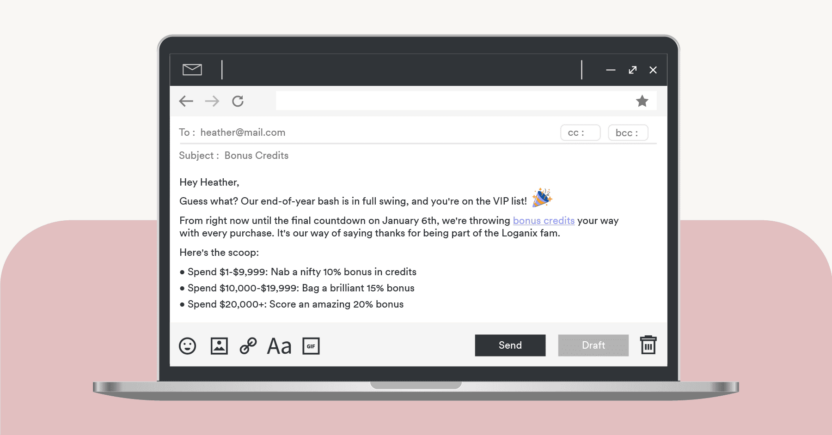
What You Should Do Instead
To avoid falling into old-fashioned traps, use natural language to reflect how a customer would be spoken to in-store. This can help build relationships and create meaningful interactions. Instead of pushing for sales, consider what would bring value to your subscribers and pique their interest. Try solving their problems or providing exclusive deals that make them feel valued.
4. Not Segmenting Mailing Lists
There is no one-size-fits-all solution when it comes to email marketing. Many businesses fall into the trap of emailing their entire mailing list. This email marketing mistake often results in low open rates, poor engagement, and even a loss in subscribers. For example, a loyal customer is not going to get any value from an introductory offer that they cannot claim, and an overseas subscriber would not be interested in US-based store events.
What You Should Do Instead
A mailing list should be segmented into different categories that split subscribers by factors such as geographic location, purchase history, or buying behavior. This way, you can create marketing campaigns to target specific segments with tailored content. With such targeted content that appeals to the subscribers’ interests, overall email stats are bound to improve.
5. Failing to Send Test Emails
Email marketing mistakes happen. But hitting ‘send’ before running thorough checks can be a costly move that makes you lose your brand credibility.
What You Should Do Instead
Before launching an email campaign, test versions of the email on multiple devices and ask other team members to review them also.
A test email will allow the recipient to check if the personalization is correct, the images have loaded and scaled as intended, the links lead to the proper destination, the copy is free of grammatical errors, and the email looks good across different devices. This quick process can avoid embarrassing errors and prevent subscriber loss.
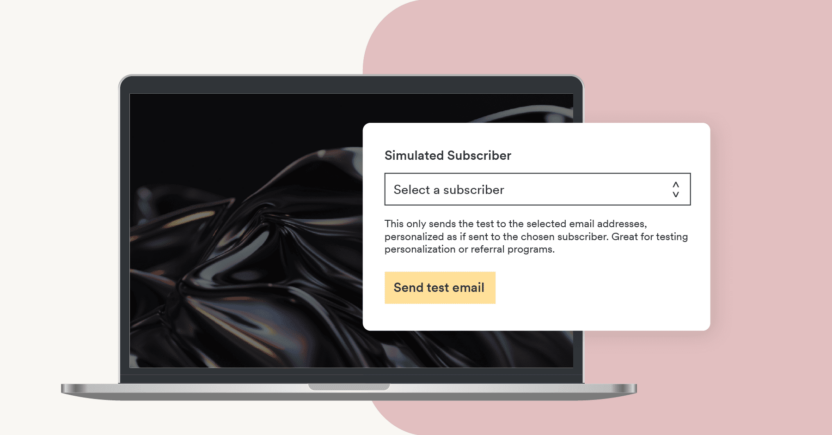
6. Not Carrying Out Health Checks
Many marketers make email marketing mistakes that have a long-term impact. Failing to allocate time to carry out the necessary health checks compromises the quality of their mailing list and impacts campaign success.
What You Should Do Instead
Run a regular health check. It consists of clearing out any invalid email addresses, removing subscribers who haven’t interacted with emails over a significant period of time, and deleting users who have unsubscribed.
Carrying out regular email list hygiene checks will ensure quality over quantity, only targeting active recipients who have an interest in the email content being sent out. This approach is bound to improve open rates, engagement, and conversion rates.
7. Violating Unsubscribe Regulations
The CAN-SPAM Act governs the way a business handles personal data and sends out marketing messages, giving users more control over their information. Not providing subscribers with a way to unsubscribe from a mailing list can be one of the most costly email marketing mistakes, as it goes against regulation and can lead to legal troubles. Similarly, suppose a recipient is unable to unsubscribe. In that case, they are more likely to report an email as spam, leading to future emails sent from the account landing straight into spam folders.
What You Should Do Instead
An unsubscribe link should be clearly visible at the bottom of every email sent, and automatically remove the recipient from the mailing list. Maintaining a clear mailing list doesn’t just mean your brand conforms to industry standards. It also maintains a positive brand image even among customers who no longer want to receive emails.
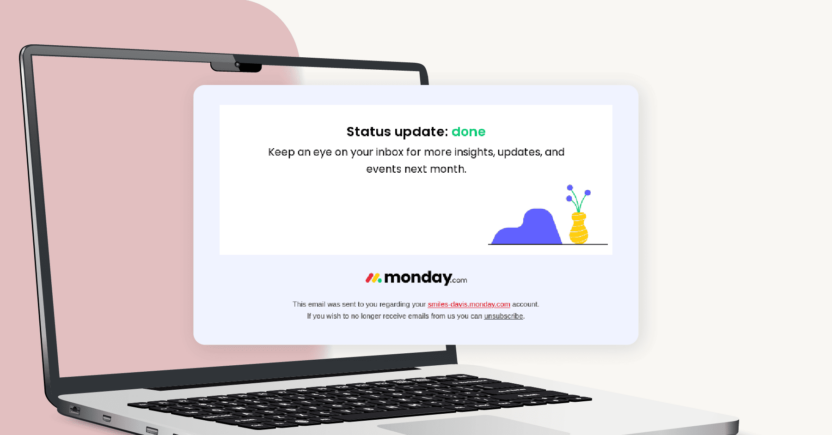
8. Slowing Down Load Time with Images
Images are undoubtedly a key aspect of email design. However, many creators fail to realize the impact this can have on load times. Large images that have not been optimized can significantly slow down the speed at which an email loads for its recipients, often leading to a low engagement rate.
What You Should Do Instead
Optimize your images for email. Compress them to reduce their file sizes and then embed them into the email template. Ensure this doesn’t compromise image quality, though.
It is also important to add alt text to each image, yet it is one of the common email marketing mistakes which senders often make. This consists of writing a text caption to describe the image, making it accessible for those with visual impairments who use a screen reader. It also helps provide context to the recipient if an image fails to load.
Mastering Your Email Marketing Strategy
As we’ve witnessed with our recent Email Benchmarks Report, email is a powerful channel that can be an incredibly effective tool for reaching and engaging customers, allowing brands to send personalized content tailored to the recipients’ behavior. Through simple tasks such as mailing list segmentation, time optimizations, health checks, and testing, your business can create powerful campaigns that increase engagement.
Keeping on top of these email best practices will ensure embarrassing email marketing mistakes will be a thing of the past.
If you want to easily measure and analyze the results of your email marketing campaigns, book a demo of MoEngage’s cross-channel marketing platform today and see how you can gain deeper insights into the performance of your campaigns while saying goodbye to recurring email marketing mistakes.

